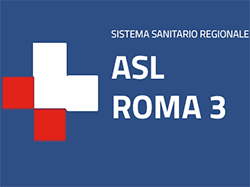- Shifting Sands: A comprehensive look at current affairs and the evolving global landscape.
- Geopolitical Realignments: The Changing World Order
- The Role of International Organizations
- Economic Shifts: Globalization, Deglobalization, and the Future of Trade
- The Rise of the Digital Economy
- Technological Disruption: AI, Automation, and the Future of Work
- Climate Change and Environmental Sustainability
- The Future of Global Governance
Shifting Sands: A comprehensive look at current affairs and the evolving global landscape.
In an increasingly interconnected world, staying informed about current affairs is more crucial than ever. The flow of information, often referred to as ‘news‘, shapes our understanding of global events, influences public opinion, and impacts political and economic landscapes. However, navigating this vast ocean of information requires critical thinking and a discerning eye. The sheer volume of data, coupled with the rise of misinformation and biased reporting, demands a renewed commitment to journalistic integrity and media literacy. Understanding the complexities of modern geopolitical challenges, economic trends, and social movements is no longer a task for experts alone; it’s a necessity for informed participation in democratic societies.
This exploration delves into the shifts occurring within the global landscape, examining key issues and analyzing their potential consequences. From evolving trade relations to the impact of climate change and the rise of new technologies, we will unpack the forces shaping our present and future. The aim is to provide a comprehensive overview, fostering a deeper understanding of the multifaceted world we inhabit.
Geopolitical Realignments: The Changing World Order
The global political order has been in a state of flux for the past few decades, with the rise of new powers challenging the established dominance of traditional players. The post-Cold War era, initially characterized by American unipolarity, has given way to a more multipolar world, with countries like China and India asserting their influence on the international stage. This shift is not merely a matter of economic growth; it also reflects changing geopolitical priorities and ideological perspectives. The increasing assertiveness of these nations often leads to tensions and competition, particularly in areas like trade, technology, and territorial disputes.
Furthermore, regional conflicts and political instability continue to pose significant threats to global security. The ongoing conflicts in various parts of the world, often fueled by ethnic tensions, religious extremism, and political opportunism, demands careful diplomatic solutions and a concerted international effort. The world is seeing a rise in non-state actors, such as terrorist organizations and criminal networks, which further complicate the security landscape.
Understanding these geopolitical realignments requires analysing the motivations and capabilities of key players, as well as the underlying drivers of conflict and cooperation. It requires a nuanced and critical approach, avoiding simplistic narratives and recognizing the complex interplay of factors that shape the international scene.
| Region | Key Players | Major Conflicts/Tensions |
|---|---|---|
| East Asia | China, Japan, South Korea, United States | Territorial Disputes in the South China Sea, North Korean Nuclear Program |
| Middle East | Saudi Arabia, Iran, Israel, United States | Syrian Civil War, Yemen Conflict, Israeli-Palestinian Conflict |
| Eastern Europe | Russia, Ukraine, NATO countries | Conflict in Ukraine, Cybersecurity Threats |
The Role of International Organizations
International organizations such as the United Nations, the World Trade Organization, and the International Monetary Fund play a crucial role in mediating conflicts, promoting economic cooperation, and addressing global challenges. These organizations provide platforms for dialogue and negotiation, allowing countries to come together and work towards common goals. However, their effectiveness is often limited by political constraints, bureaucratic inefficiencies, and the diverging interests of member states. Addressing these shortcomings requires a renewed commitment to multilateralism and a willingness to strengthen the capacity of these organizations to respond to the evolving challenges of the 21st century.
The UN Security Council, in particular, has often been criticized for its inability to address major crises effectively, due to the veto power held by its five permanent members. Reforming the Security Council to make it more representative and accountable is a complex task, but one that is essential for ensuring its legitimacy and effectiveness. Similarly, the WTO faces challenges in addressing issues like trade imbalances, intellectual property rights, and environmental concerns. A modernized and more equitable trade system is vital for promoting sustainable economic growth and reducing global inequality.
The importance of international cooperation cannot be overstated. Many of the challenges facing humanity – climate change, pandemics, terrorism, and economic instability – transcend national borders and require global solutions. Investments in resources, diplomacy and aid programs are necessary to continue to support international efforts.
Economic Shifts: Globalization, Deglobalization, and the Future of Trade
The global economy has undergone significant transformations in recent decades, driven by the forces of globalization, technological innovation, and changing consumer preferences. The rise of global value chains, the expansion of free trade agreements, and the increasing interconnectedness of financial markets have led to unprecedented levels of economic integration. However, recent events, such as the COVID-19 pandemic and the Russian invasion of Ukraine, have exposed the vulnerabilities of global supply chains and prompted a reevaluation of the benefits of globalization. There is a growing trend towards reshoring and friend-shoring, as companies seek to reduce their reliance on distant suppliers and diversify their supply sources.
This shift towards a more fragmented global economy has raised concerns about the potential for trade wars, protectionism, and reduced economic growth. However, it also presents opportunities for regional integration, increased resilience, and the development of new economic models. The future of trade will likely be characterized by a greater focus on sustainability, ethical sourcing, and digital commerce. Furthermore, the rise of new technologies, such as artificial intelligence, robotics, and blockchain, is disrupting traditional industries and creating new possibilities for economic innovation.
Navigating this changing economic landscape requires a proactive and adaptable approach. Governments must invest in education, infrastructure, and research and development to foster innovation and competitiveness. They must also create a regulatory environment that supports entrepreneurship and encourages responsible business practices.
- Reshoring: Bringing production back to the home country.
- Friend-shoring: Shifting production to friendly countries.
- Regionalization: Focusing on trade within regional blocs.
- Diversification: Reducing reliance on single suppliers or markets.
The Rise of the Digital Economy
The digital economy is rapidly transforming all aspects of life, from the way we communicate and consume information to the way we work and conduct business. The internet, mobile technology, and social media have created unprecedented opportunities for innovation, economic growth, and social connection. However, the digital economy also presents new challenges, such as data privacy concerns, cybersecurity threats, and the digital divide. Addressing these challenges requires a comprehensive regulatory framework that balances innovation with consumer protection and promotes equitable access to digital technologies.
The proliferation of e-commerce, the growth of the gig economy, and the rise of digital currencies are all contributing to the expansion of the digital economy. These trends are reshaping traditional industries and creating new employment opportunities. However, they also raise concerns about labor rights, income inequality, and the erosion of social safety nets. Governments must adapt their policies to address these challenges and ensure that the benefits of the digital economy are shared broadly.
It requires investments in digital infrastructure, workforce development, and digital literacy programs to enable individuals and businesses to thrive in the digital age. It needs careful consideration of the ethical implications of new technologies, such as artificial intelligence, and the establishment of clear guidelines for their responsible development and deployment.
Technological Disruption: AI, Automation, and the Future of Work
Technological innovation is occurring at an accelerating pace, driven by advancements in artificial intelligence, machine learning, robotics, and biotechnology. These technologies have the potential to revolutionize industries, improve productivity, and enhance quality of life. However, they also pose significant challenges, particularly in the realm of employment. Automation and artificial intelligence are automating routine tasks, leading to job displacement in many sectors. Preparing the workforce for the future of work requires investing in education, retraining programs, and lifelong learning initiatives.
The integration of AI into various aspects of life also raises ethical concerns, such as bias in algorithms, the potential for misuse of data, and the impact on human autonomy. Addressing these concerns requires developing clear ethical guidelines and regulatory frameworks for the development and deployment of AI. Transparency, accountability, and fairness are essential principles that should guide the use of AI technology.
Furthermore, the development of new technologies is creating new opportunities for entrepreneurship and innovation. Governments must foster a supportive environment for startups and encourage the development of innovative solutions to address global challenges. They must also promote collaboration between academia, industry, and government to accelerate the pace of innovation.
- Invest in education and retraining programs to prepare the workforce for the future of work.
- Develop ethical guidelines and regulatory frameworks for the responsible development and deployment of AI.
- Promote collaboration between academia, industry, and government to accelerate innovation.
- Foster a supportive environment for startups and entrepreneurs.
Climate Change and Environmental Sustainability
Climate change is one of the most pressing challenges facing humanity, with far-reaching consequences for ecosystems, economies, and societies. The increasing frequency and intensity of extreme weather events, such as heatwaves, droughts, and floods, are already causing significant damage and displacement. Addressing climate change requires a global effort to reduce greenhouse gas emissions, transition to renewable energy sources, and adapt to the impacts of a changing climate.
The Paris Agreement, a landmark international accord, sets a goal of limiting global warming to well below 2 degrees Celsius above pre-industrial levels. Achieving this goal requires ambitious commitments from all countries, as well as significant investments in clean energy technologies and sustainable infrastructure. However, progress has been slow, and current policies are not sufficient to meet the targets set in the Paris Agreement.
Promoting environmental sustainability requires a holistic approach that considers the interconnectedness of environmental, social, and economic systems. It needs to incentivize sustainable consumption patterns and the development of a circular economy, prioritizing resource efficiency, waste reduction, and recycling. It requires responsible land use practices and the protection of biodiversity.
The Future of Global Governance
In an increasingly complex and interconnected world, the need for effective global governance is more urgent than ever. However, the current system of international cooperation faces significant challenges, including rising nationalism, geopolitical tensions, and the erosion of trust in multilateral institutions. Strengthening global governance requires reforming existing institutions, fostering greater collaboration among countries, and addressing the root causes of conflict and instability.
One of the key challenges is to ensure that global governance structures are more inclusive and representative, giving greater voice to developing countries and marginalized communities. This requires reforming the UN Security Council, strengthening the role of international civil society, and promoting greater transparency and accountability in decision-making processes. Furthermore, it calls for addressing the concerns about sovereignty and national interests that often hinder international cooperation.
Building a more resilient and sustainable future depends on our ability to overcome these challenges and forge a new era of global cooperation. It requires a shared commitment to common values, such as peace, justice, and environmental sustainability. It needs international diplomacy and a willingness to work together to address the challenges of the 21st century.



